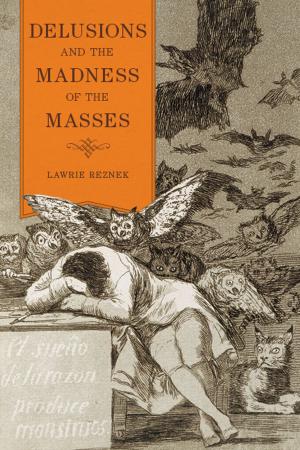The Politics of Greed
How Privatization Structured Politics in Central and Eastern Europe
Nonfiction, History, Eastern Europe, Social & Cultural Studies, Political Science, International, International Relations| Author: | Andrew Harrison Schwartz | ISBN: | 9781461645153 |
| Publisher: | Rowman & Littlefield Publishers | Publication: | October 12, 2006 |
| Imprint: | Rowman & Littlefield Publishers | Language: | English |
| Author: | Andrew Harrison Schwartz |
| ISBN: | 9781461645153 |
| Publisher: | Rowman & Littlefield Publishers |
| Publication: | October 12, 2006 |
| Imprint: | Rowman & Littlefield Publishers |
| Language: | English |
With the dissolution of the Soviet Empire, it seemed that market capitalism had triumphed and that democracy might replace authoritarian regimes. Economic reformers in the former Eastern Bloc rushed to liberalize prices and transfer state assets to private hands. They assumed that private owners in a market setting would have no choice but to behave rationally—that is, to invest in restructuring privatized enterprises so as to maximize profits. They also assumed that these owners would perceive a stable institutional environment as conducive to economic success and thus become a powerful lobby in favor of the rule of law, paving the way for democracy.
The post-communist reality turned out to be very different. Private owners found that in a weak state with limited laws and regulations and ineffective corporate governance structures, it was more lucrative to steal enterprise assets and exploit opportunities for arbitrage than to restructure enterprises. The lesson learned is that not all forms of private ownership are the same. As this book's in-depth political history of privatization in Central and Eastern Europe demonstrates, the way that assets are privatized matters, both with respect to national economic performance and the successful development of the rule of law. Andrew Harrison Schwartz had unprecedented access to high-level Czech government officials during the Czech Republic's privatization process. This book is the result of the unique insights he gained and the innovative analytical framework he subsequently developed—ownership regime theory—which for the first time places ownership structures at the center of political transition analysis. Engaging and important, The Politics of Greed applies ownership regime theory to a broad range of post-communist privatization cases, including those of the Czech Republic, Poland, Hungary, Russia, and Ukraine.
With the dissolution of the Soviet Empire, it seemed that market capitalism had triumphed and that democracy might replace authoritarian regimes. Economic reformers in the former Eastern Bloc rushed to liberalize prices and transfer state assets to private hands. They assumed that private owners in a market setting would have no choice but to behave rationally—that is, to invest in restructuring privatized enterprises so as to maximize profits. They also assumed that these owners would perceive a stable institutional environment as conducive to economic success and thus become a powerful lobby in favor of the rule of law, paving the way for democracy.
The post-communist reality turned out to be very different. Private owners found that in a weak state with limited laws and regulations and ineffective corporate governance structures, it was more lucrative to steal enterprise assets and exploit opportunities for arbitrage than to restructure enterprises. The lesson learned is that not all forms of private ownership are the same. As this book's in-depth political history of privatization in Central and Eastern Europe demonstrates, the way that assets are privatized matters, both with respect to national economic performance and the successful development of the rule of law. Andrew Harrison Schwartz had unprecedented access to high-level Czech government officials during the Czech Republic's privatization process. This book is the result of the unique insights he gained and the innovative analytical framework he subsequently developed—ownership regime theory—which for the first time places ownership structures at the center of political transition analysis. Engaging and important, The Politics of Greed applies ownership regime theory to a broad range of post-communist privatization cases, including those of the Czech Republic, Poland, Hungary, Russia, and Ukraine.















